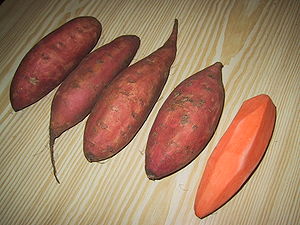
In light of the recent attacks on supplements both in the US and Europe, NutraIngredients-USA.com takes a look at the position of one of the most respected sources of nutritional advise for consumers: Harvard Medical School.
According to Harvard's advice papers on nutrition, people especially women suffering from menopausal symptoms who are not getting enough vitamins and minerals would do better to adjust their diet to include more nutrient-rich foods rather than take supplements.
In its Healthy Eating: A Guide to the New Nutrition, Harvard Medical School (HMS) urges consumers not to rely on supplements which do not contain all the other healthy food components. “There are likely many more beneficial components of healthy foods than the ones scientists have identified so far, as well as synergistic effects among them,” it says.
Antioxidants from food - not pills
“Vegetables and fruits are chock-full of the phytochemicals,” the authors say. “Eating enough vegetables and fruits not only helps prevent vitamin and mineral deficiencies, but can actually stave off a variety of other health conditions like menopausal hot flashes and night sweats as well.”
“It appears unlikely that taking antioxidants in supplement form will help protect against heart disease or cancer,” it says. “It could be that it’s the orchestration of antioxidants naturally present in foods, rather than one or two vitamins in high doses, that can lower your risk of serious illnesses."
“So it’s worthwhile to include antioxidants in your diet, but get them from foods – such as oranges, tomatoes, sweet potatoes, carrots, broccoli, whole grains, and nuts – and not from pills.”
Harvard Medical Publications said the guidelines, published last year, reflected its general opinion on nutrition.
Vitamins: Doubt or benefit?
In a separate advice paper for the public, ’Vitamins: Benefit of the doubt vs. doubts about benefit,’ HMS tell consumers: “Added vitamins have lost their sheen, and there are more doubts than ever about taking them in pill form. Large doses of single vitamins aren’t a good idea: the benefit is doubtful, and some can cause harm.” It points out the exceptions of vitamin D, and folic acid for young women.
On multivitamins it says: “The doses they contain aren’t likely to pose any risk, but the leap of faith that we’re getting benefit from them has definitely gotten longer. On the other hand, it’s a reasonable choice to take a multivitamin — or not to, if you have a well-rounded diet.”...read more

No comments:
Post a Comment